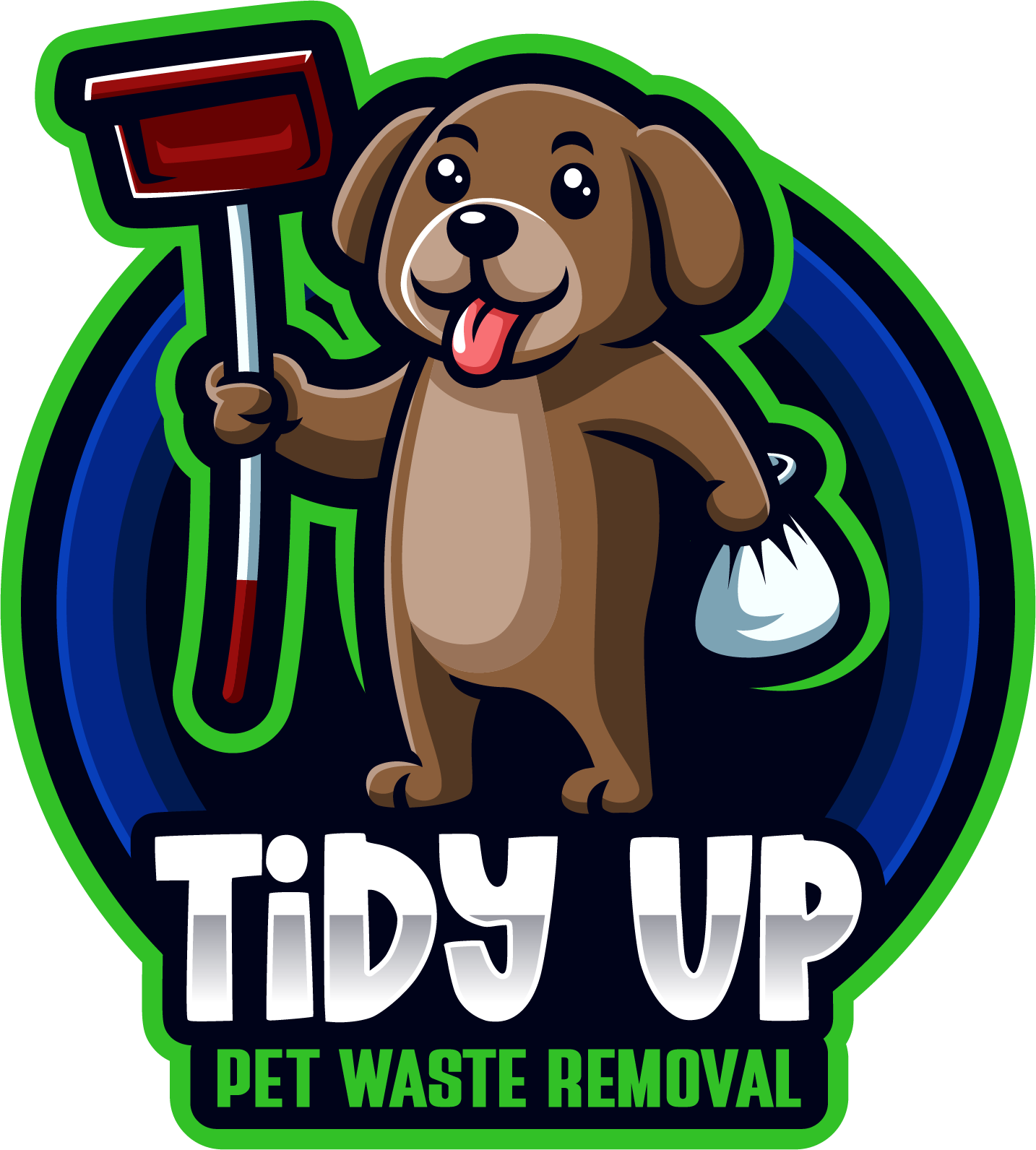As a pet owner, managing pet waste may feel like a small task, but its impact on human health can be significant if not handled correctly. Dog waste left unattended in yards, parks, or public spaces can carry harmful bacteria, viruses, and parasites that pose serious health risks to humans. These risks are especially concerning for children, the elderly, and individuals with compromised immune systems.
In this article, we’ll explore how improper pet waste disposal can contribute to the spread of diseases among humans, the specific pathogens involved, and the steps you can take to minimize these risks. We’ll also discuss why regular and responsible pet waste removal is a critical part of keeping your family and community safe.
How Improper Pet Waste Disposal Spreads Disease
Dog waste is more than just an unpleasant mess—it’s a breeding ground for disease-causing organisms that can have serious consequences for human health. When pet waste is not removed in a timely manner, these pathogens can spread through direct contact, contaminate soil, water systems, and even make their way into homes.
1/Direct Contact with Contaminated Surfaces
When dog waste is left on the ground, it can quickly become a health hazard. People, particularly children, can accidentally touch contaminated soil, grass, or surfaces where waste has been left to decay. Even brief contact with these contaminated areas can expose humans to harmful bacteria and parasites.
Children, who are more likely to play in outdoor spaces and less likely to be aware of hygiene practices, are at a higher risk of contracting diseases from pet waste. They may unknowingly touch contaminated areas and then touch their mouths, increasing the likelihood of illness.
2/Water Contamination
Improperly disposed pet waste is one of the leading contributors to water contamination. When it rains, dog waste can be washed into storm drains, rivers, lakes, and even groundwater sources, carrying harmful pathogens with it. Once in the water system, these contaminants can affect drinking water supplies, recreational areas, and crops irrigated with contaminated water.
Fecal coliform bacteria, which is commonly found in dog waste, is a major cause of waterborne illnesses in humans. It can lead to gastrointestinal infections, skin rashes, and other serious health conditions, especially in communities relying on well water or those near natural water bodies.
Diseases Caused by Pet Waste That Affect Humans
Dog waste can harbor a variety of pathogens that are harmful to humans. These include bacteria, viruses, and parasites that can cause a wide range of diseases, some of which can be life-threatening if not properly treated. Below are some of the most common health concerns associated with improper pet waste disposal.
1/Bacterial Infections
Dog waste is a major carrier of harmful bacteria, including Escherichia coli (E. coli), Salmonella, and Campylobacter. These bacteria can be transmitted through direct or indirect contact with contaminated surfaces, soil, or water.
E. coli
Certain strains of E. coli, such as E. coli O157, can cause severe gastrointestinal infections in humans. Symptoms include abdominal pain, diarrhea (often bloody), vomiting, and fever. Children, the elderly, and those with weakened immune systems are particularly vulnerable to more severe complications, such as kidney failure, from E. coli infections.
Salmonella
Salmonella is another bacterium commonly found in dog waste. It can cause salmonellosis, a serious infection in humans that results in symptoms like fever, diarrhea, nausea, vomiting, and abdominal cramps. Those at higher risk, including young children and immunocompromised individuals, can suffer from severe, even life-threatening symptoms.
Campylobacter
Campylobacter is a bacterial pathogen that is often spread through dog waste. It can cause campylobacteriosis in humans, leading to gastrointestinal distress, including diarrhea, cramping, abdominal pain, and fever. In some cases, Campylobacter infections can lead to more severe conditions such as Guillain-Barré syndrome, a disorder that affects the nervous system.
2/Viral Threats
Pet waste can also carry viruses that are dangerous to humans. One of the most common viral threats associated with improper dog waste disposal is the rotavirus, which primarily affects children and can lead to severe diarrhea, dehydration, and vomiting.
3/Parasites in Dog Waste
Perhaps one of the most concerning health risks from dog waste is the presence of parasites, particularly roundworms and hookworms. These parasites can infect humans through contact with contaminated soil, grass, or water, leading to a variety of health problems.
Roundworms
Roundworms are a common parasite found in dog feces. Humans, particularly children, can accidentally ingest roundworm eggs from contaminated soil or surfaces. Once ingested, the eggs hatch into larvae that can migrate through the body, potentially causing organ damage, blindness, or a condition known as visceral larva migrans.
Hookworms
Hookworms, another parasite found in dog waste, can penetrate the skin and cause cutaneous larva migrans, a condition that leads to itchy, painful skin rashes. These parasites can also cause anemia in both humans and animals, as they feed on their host’s blood. Children who play barefoot in contaminated areas are especially vulnerable to hookworm infections.
4/Zoonotic Diseases
Zoonotic diseases are illnesses that can be transmitted from animals to humans. Pet waste can be a vector for various zoonotic diseases, including giardiasis and cryptosporidiosis, which are caused by protozoan parasites found in dog feces. These diseases can lead to severe diarrhea, abdominal discomfort, and dehydration, particularly in children and people with weakened immune systems.
Protecting Human Health with Proper Pet Waste Removal
Given the serious health risks associated with improper pet waste disposal, it’s critical to adopt responsible waste removal practices. Here are some ways to ensure you’re doing your part to protect your family and community from the dangers of pet waste.
1/Timely and Consistent Clean-Up
One of the most effective ways to minimize the risk of disease is by cleaning up after your dog promptly and regularly. The longer waste is left in your yard or public spaces, the more time bacteria and parasites have to multiply, increasing the chance of contamination.
Using disposable bags to pick up pet waste and disposing of it in a sealed trash bin helps prevent the spread of pathogens. Additionally, washing your hands thoroughly after handling pet waste reduces the risk of accidental transmission of bacteria or parasites.
2/Safe Disposal Methods
It’s important to dispose of pet waste in an environmentally safe way. Avoid flushing dog waste down the toilet, as it can overwhelm sewage systems and lead to water contamination. Instead, bagging the waste in biodegradable bags and disposing of it in a designated pet waste bin is a safer and more eco-friendly option.
3/Professional Pet Waste Removal Services
For pet owners with busy schedules or large outdoor spaces, hiring a professional pet waste removal company can be an effective solution. These services ensure that your yard is cleaned regularly and thoroughly, reducing the risk of bacterial and parasitic contamination. Professional companies also have the expertise to handle pet waste safely, protecting your family from potential health hazards.
Pet waste is more than just a messy inconvenience—it poses serious health risks to humans, particularly children and individuals with compromised immune systems. Harmful bacteria like E. coli and Salmonella, along with parasites like roundworms and hookworms, can thrive in dog waste, leading to infections, illnesses, and even long-term health complications.
By adopting proper pet waste removal practices and considering professional services, you can minimize these risks and create a safer environment for your family and community. Regularly cleaning up pet waste not only keeps your outdoor spaces clean but also protects against the spread of dangerous diseases.
Taking proactive steps to manage pet waste effectively is essential for maintaining a healthy and safe environment for everyone.
Ready to take the hassle out of pet waste removal? Visit www.tidyuppetwasteremoval.com to schedule regular clean-up services and keep your yard clean and safe!


Leave a Reply